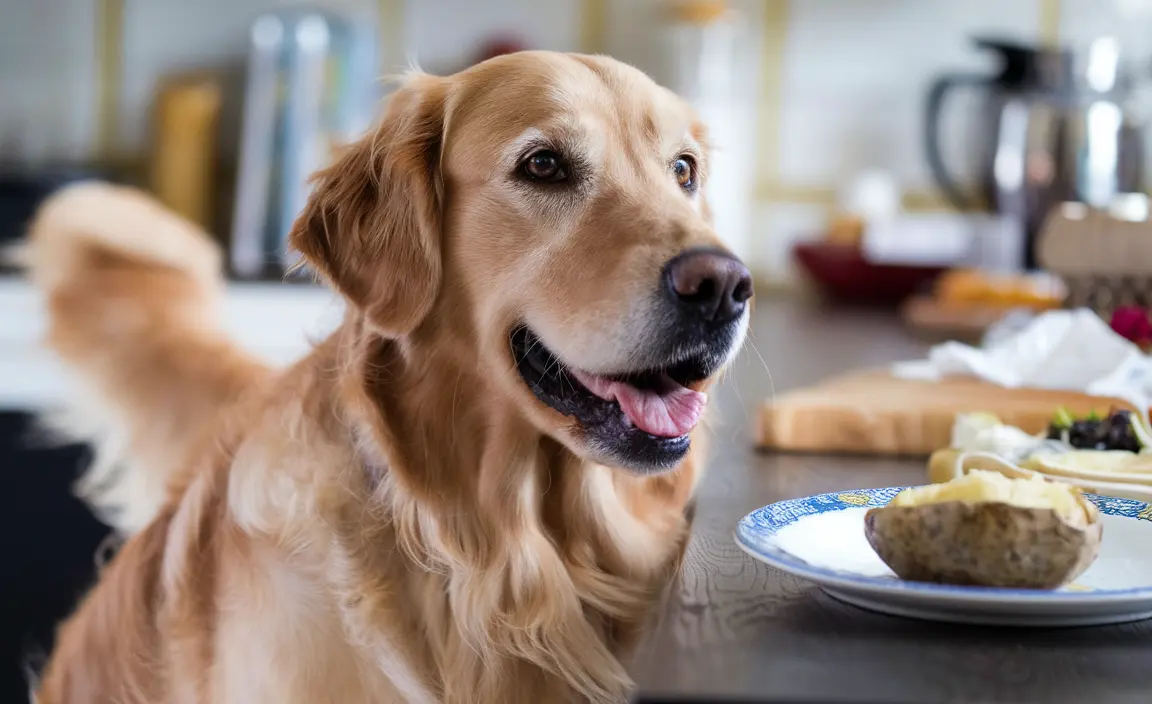Nutritional Benefits of Potatoes for Dogs
Potatoes aren't just a human staple—they can offer significant nutritional advantages for dogs when prepared properly. These versatile vegetables provide a range of essential nutrients that can support your dog's overall health.
Complex Carbohydrates and Energy
Cooked potatoes serve as an excellent source of complex carbohydrates, delivering slow-release energy that helps maintain your dog's vitality throughout the day. The steady energy release can be particularly beneficial for active dogs or those with moderate exercise routines.
Vital Vitamins and Minerals
Potatoes are packed with important nutrients that contribute to your dog's wellness:
- Vitamin C: Supports immune system function
- Vitamin B6: Promotes metabolism and skin health
- Potassium: Supports heart and muscle function
- Phosphorus: Contributes to bone health
Safe Potato Preparation for Dogs
Not all potato preparations are created equal. To ensure your dog's safety, follow these critical guidelines when introducing potatoes to their diet.
Cooking Methods
Always cook potatoes thoroughly before serving. Recommended preparation methods include:
- Baking
- Roasting
- Boiling
What to Avoid
Steer clear of potentially harmful potato preparations:
- Raw potatoes
- Green-skinned potatoes
- Potatoes with added seasonings
- Fried potato products
- Processed potato chips
Potential Risks and Precautions
While potatoes can be nutritious, they're not without potential risks. Dog owners must exercise caution and moderation.
Solanine Toxicity
Raw potatoes and green potato skins contain solanine, a toxic compound that can cause significant health issues in dogs. Always remove green areas and cook potatoes thoroughly to eliminate this risk.
Serving Considerations
Consider these important factors before feeding potatoes to your dog:
- Introduce potatoes gradually
- Monitor for digestive reactions
- Avoid for dogs with diabetes
- Consult your veterinarian, especially for dogs with pre-existing health conditions
Recommended Serving Sizes
Portion control is crucial when adding potatoes to your dog's diet. Here's a general guide based on your dog's weight:
- Extra-small dogs (2–20 lbs): 1 teaspoon
- Small dogs (21–30 lbs): 1–2 teaspoons
- Medium dogs (31–50 lbs): 2–3 teaspoons
Frequently Asked Questions
Can dogs safely eat raw potatoes, or are cooked potatoes the only option?
Dogs should never eat raw potatoes. Always cook potatoes thoroughly to eliminate solanine and make them safe for canine consumption.
How should I safely prepare baked potatoes for my dog to eat as a treat?
Bake potatoes plain, without salt, butter, or seasonings. Allow them to cool completely, then cut into small, manageable pieces.
What are the health benefits of feeding cooked potatoes to my dog?
Cooked potatoes provide complex carbohydrates, dietary fiber, vitamins, and minerals that support energy, digestion, and overall health.
Are mashed potatoes okay for dogs, and what ingredients should I avoid adding?
Plain mashed potatoes are acceptable in small amounts. Avoid adding butter, salt, cheese, garlic, or onions, which can be harmful to dogs.
How much cooked potato can I safely give to my dog as a food topper or treat?
Start with small portions based on your dog's weight, typically 1-3 teaspoons, and monitor for any adverse reactions.
Remember, while potatoes can be a nutritious addition to your dog's diet, they should be an occasional treat, not a dietary staple. Always prioritize a balanced, veterinarian-approved diet for your furry friend.






